7 Day Raw Food Diet Plan: 1-Week Meals For Weight Loss
Weight loss and improved digestion are just some of the many benefits of this short-term diet.

Image: Shutterstock
Raw, unprocessed foods are rich in nutrients and low in calories. That is why many health-conscious people are switching to eating raw foods. Going on a 7-day raw food diet plan, which includes juicing fruits and sprouting seeds, can help you lose weight, lower the risk of heart disease by lowering cholesterol levels, and potentially reverse diabetes. By choosing raw foods, you are not only making a healthy choice for yourself but also taking a significant step towards reducing food waste and protecting the environment. Moreover, raw foods are free of preservativesi Natural or synthetic compounds added to food to prevent its decaying by microorganisms or chemical changes. . However, eating unprocessed raw foods may also cause vitamin B12 deficiency (1). So, is going on a raw food diet (also called raw foodism) safe? Or can you strike a balance between raw foods and cooked ones? Read this post to know everything about the raw food diet. Scroll down!
In a survey conducted on 8,704 US adults, it was reported that at least 17.8% of them were on a special kind of diet. It was also noted that special diets were more prevalent in women than men. Also, more adults aged between 40 and 60 and over were on a diet compared to younger adults aged 20-39. So, follow this raw food diet to stay healthy.
 At A Glance: The Raw Food Diet
At A Glance: The Raw Food Diet- Principle: A dietary practice that involves consuming raw foods or foods that are not heated above 115°F
- Purpose: To improve overall health, lose weight, gain more energy, and be more active.
- Who It Is For: Individuals trying to lose weight, manage diabetes and hormonal imbalances, and reduce high cholesterol levels.
- Duration: Short-term
- Who Should Avoid: Individuals who are pregnant or breastfeeding, underweight, or have a weak digestive system.
- Cons: May cause inflammation in the digestive tract and vitamin B12 deficiency.
In This Article
What Is The Raw Food Diet?
A raw food diet approach emphasizes the consumption of unprocessed, whole, and plant-based foods in their natural state, typically not heated above 118°F (48°C). The diet primarily consists of raw fruits, vegetables, nuts, seeds, and sprouted grains.The core principle is that cooking and processing foods can destroy essential enzymes, nutrients, and natural beneficial bacteria, which proponents believe are vital for overall good health. Raw foodists often use methods like juicing, blending, soaking, and dehydrating to prepare their meals. Advocates of the raw food diet claim that it provides various health benefits, including increased energy, improved digestion, and better skin health. However, it is essential to note that this diet can be challenging to maintain in the long term, and it requires careful planning to ensure adequate intake of essential nutrients that are found in cooked food.

If you are curious to know if this diet is for you, check out the next section.
Key Takeaways
- Raw foods contain zero preservatives and lots of essential nutrients.
- A raw food diet may help you shed extra calories, lower cholesterol levels, and improve overall health.
- People with weak digestive systems should avoid this diet.
- A 7-day raw food diet is good for those with specific health conditions.
Is The Raw Food Diet Good?

The raw food diet can be traced back to the 1800s and has become popular in the recent past. And that’s because people who consume 70% of their food raw are believed to have a longer life, have a lower incidence of diseases, and tend to be healthier than others. According to a report by Scientific American, “A raw foods diet typically consists of unprocessed foods that are not heated above 115 degrees Fahrenheit so as to preserve nutrients otherwise lost during cooking.” Raw food dieters have reported losing weight more quickly, having more energy, and being more active as it is rich in plant-protein. Many people also choose to go on a raw food diet to flush out toxins and avoid potential carcinogensi Substances, organisms (like viruses), or agents (like UV rays) capable of inducing cancer in living tissue cells. . By consuming raw food, you may reduce the risk of heart disease and being overweight, as it is rich in antioxidants ( 2) (3). However, following a raw food nutrition diet for a long time puts you at the risk of becoming underweight, so practice caution.
 Trivia
TriviaDr. Joanne L. Mumola Williams, a health enthusiast blogger, emphasizes the benefits of consuming raw food, including its enzyme-rich nature, preservation of heat-sensitive nutrients, and its contribution to maintaining an optimal pH balance in the body. But she also mentions the importance of adding cooked food to your diet, writing, “Even if you’re a raw foodist and eat most of your food raw, there are still some important reasons to eat cooked foods… A 100% raw food vegan diet does not provide all the nutrients you need…You cannot get vitamin B12 from plants. If you are 100% raw (vegan), you will have to take supplements or eat non-raw food (i)!”
Does The 7-Day Raw Food Diet Work? What Tracy Tredoux, A Nutritional Therapist, Says
Tracy Tredoux, DipION, mBANT, CNHC, AFMCP, says, “Embracing a 7-day raw food diet is a vibrant leap into a nutrient-rich, natural step of goodness, providing a range of phytonutrients, vitamins, and minerals. However, despite its numerous health benefits, it does present some challenges for certain individuals who may experience digestive discomfort due to a lack of sufficient enzymes to break down raw foods. Other considerations include certain vegetables requiring cooking in order to enhance the bioavailability of various nutrients, such as protein, iron, calcium, and vitamin B12. Considering all of these factors, a short-term, 7-day, carefully planned raw food diet indeed has many health benefits.”
Now, the main question is, what should you consume in the raw food diet, and what should your meal plan look like? Scroll down to find out.
7-Day Raw Food Diet Meal Plan
Though many vegans are raw food dieters, as it is mostly a plant-based diet, many raw food dieters are also lacto-vegetarians and meat eaters. If you are intrigued, let me show you what you should consume on a raw food diet. Make sure to tweak the foods according to your taste, choice, and availability. It basically includes raw fruits and vegetables, sprouted grains and legumes, raw nuts and seeds, raw salads, raw smoothies, and raw soups, as well as raw desserts. You can take a look at the “Foods To Eat And Avoid” section to figure out which foods you can consume.
Day 1
| Meals | What To Eat |
|---|---|
| Breakfast (8:00 a.m.) | Berry smoothie + handful of walnuts |
| Lunch (12:30 p.m.) | Kale, tomato, and sprouted bean salad + 1 cup coconut water |
| Snack (3:30 p.m.) | 1 cup green tea + 10 in-shell pistachios |
| Dinner (7:00 p.m.) | Lettuce, purple cabbage, olives, and cucumber salad |
Day 2
| Meals | What To Eat |
|---|---|
| Breakfast (8:00 a.m.) | Milk, banana, and nut butter smoothie |
| Lunch (12:30 p.m.) | Cucumber, carrot, and tomato, and sprouted lentil salad with olive oil and lime juice dressing |
| Snack (3:30 p.m.) | Fresh fruit juice |
| Dinner (7:00 p.m.) | Guacamole and watermelon |
Day 3
| Meals | What To Eat |
|---|---|
| Breakfast (8:00 a.m.) | Mung bean sprouts + 2 walnuts |
| Lunch (12:30 p.m.) | Bell pepper, cucumber, and tomato – lettuce wrap |
| Snack (3:30 p.m.) | Baby carrot and hummus |
| Dinner (7:00 p.m.) | Cucumber and kimchi |
Day 4
| Meals | What To Eat |
|---|---|
| Breakfast (8:00 a.m.) | Spinach and banana smoothie + handful of walnuts |
| Lunch (12:30 p.m.) | Watermelon Balsamic salad with pepitas + 1 cup coconut water |
| Snack (3:30 p.m.) | 1 orange |
| Dinner (7:00 p.m.) | Carrot and cabbage salad with ¼ avocado |
Day 5
| Meals | What To Eat |
|---|---|
| Breakfast (8:00 a.m.) | Raw egg protein shake + 4 almonds Or Banana and chocolate shake + 2 Brazil nuts |
| Lunch (12:30 p.m.) | Lettuce wrap + sprouted chilled lentil soup (not heated) |
| Snack (3:30 p.m.) | Apple & 1 tablespoon raw nut butter |
| Dinner (7:00 p.m.) | Avocado and cucumber salad |
Day 6
| Meals | What To Eat |
|---|---|
| Breakfast (8:00 a.m.) | Chia seed pudding + handful of walnuts |
| Lunch (12:30 p.m.) | Vegetable salad |
| Snack (3:30 p.m.) | Puffed rice salad |
| Dinner (7:00 p.m.) | Zucchini salad + 1 piece of dark chocolate |
Day 7
| Meals | What To Eat |
|---|---|
| Breakfast (8:00 a.m.) | Oats smoothie |
| Lunch (12:30 p.m.) | Cucumber and tomato salad + buttermilk |
| Snack (3:30 p.m.) | 10 in-shell pistachios + ½ grapefruit |
| Dinner (7:00 p.m.) | Raw papaya salad |
How You Will Feel By The End Of Day 7
By the end of Day 7, you will feel rejuvenated and energetic and look a lot slimmer. If you are a lacto-vegetariani Vegetarians who consume dairy products like cheese, milk, etc. They refrain from meat and egg consumption. or a meat eater, it will be a little tough for you for the first two days. But by Day 3, you will start to get into the groove. And by the end of Day 5, you will notice a significant reduction in your weight and feel more alert and active.
To follow the raw food diet, you have to be a little conscious about what you can and cannot eat. Here’s a list – scroll down.
Raw Food Diet – Foods To Eat And Avoid
| Foods To Eat | Foods To Avoid |
|---|---|
| Fresh veggies | Cooked/baked veggies, meat, legumes, grains, etc. |
| Fresh fruits you can eat raw | Toasted nuts and seeds |
| Nuts, seeds, and nut butters | Pasta |
| Sprouted legumes | Alcohol |
| Almond milk and nut yogurt | Junk food |
| Edible grade coconut oil, olive oil, and avocado oil | Coffee/tea |
| Seaweed | Refined flour and sugar |
| Kimchi and sauerkraut | Pasteurized milk and juices |
| Raw eggs and fish | Table salt and refined oil |
Basically, 70% of your food should be uncooked. If you can consume raw eggs and fish, go for it. But for safety concerns, it is best to avoid doing so. Here are a few recipes to show how easy these raw food preparation techniques are. So, check out the section below for numerous healthy recipes, from raw food breakfast ideas to quick salad bowls.
Raw Food Diet Recipes
It might be challenging to adopt a raw food diet overnight. However, the following recipes can ease the transition:
1. Raw Food Breakfast Oatmeal Smoothie
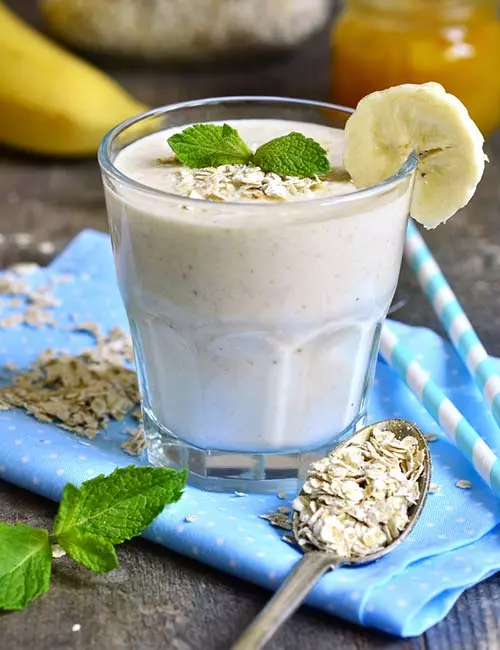
Ingredients
- 2 tablespoons rolled oats
- 1 frozen banana
- ½ cup almond milk
- 1 teaspoon flaxseed powder
How To Prepare
- Blend all the ingredients until they form a smooth texture.
- You may optionally add some honey for an enhanced flavor.
- Serve in a glass with some roasted almond flakes as garnish.
2. Raw Food Lunch Lettuce Salad
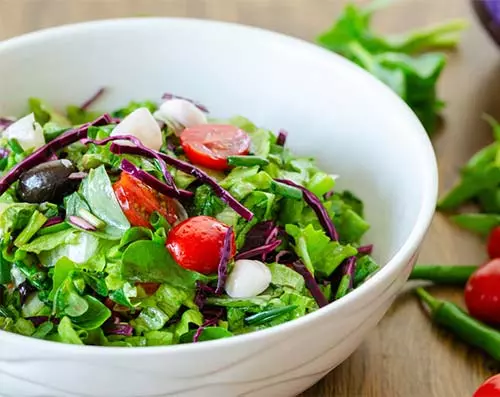
Ingredients
- ½ cup chopped iceberg lettuce
- 4 halves cherry tomatoes
- ½ cup cubed cucumbers
- ¼ cup finely sliced purple cabbage
- A few olives
- 2 tablespoons olive
- A pinch of sea salt
- A pinch of ground black pepper
How To Prepare
- Toss all the ingredients together.
- Drizzle olive oil and add a pinch of salt and black pepper.
- Give it a final toss, and lunch is served!
 Quick Tip
Quick Tip3. Raw Food Dinner Vegan Carrot Salad
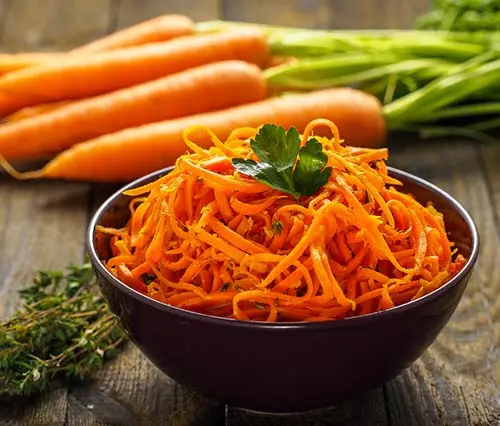
Ingredients
- 1 cup finely chopped or grated carrot
- 2 tablespoons olive oil
- 1 tablespoon chopped cilantro
- ½ teaspoon dried rosemary
- 2 tablespoons lime juice
- A pinch of sea salt and black pepper
How To Prepare
- Toss the carrot and chopped cilantro in a bowl.
- Add olive oil, lime juice, rosemary, and seasoning.
- Give it a final toss, and dinner is ready!
So, you see, it is really easy and hassle-free to prepare raw food recipes. Plus, they are loaded with phytonutrients.
Let’s take a quick look at the benefits of the raw food diet.
Raw Food Diet Benefits

- Helps detoxifyi Medical or physiological removal of harmful toxins or poisonous substances from the living body. the body.
- Can aid weight loss (3).
- May improve digestion.
- May reduce the risk of heart disease, obesity, and diabetes ( 2) (3).
- May help reduce your risk of cancer (4).
- Can provide relief from constipation.
- May improve liver function.
- Can boost your skin, hair, and nail health.
- May increase your energy levels.
Note: There is limited evidence to back some of these benefits. Hence, more studies are warranted.
Raw Food Diet Side Effects
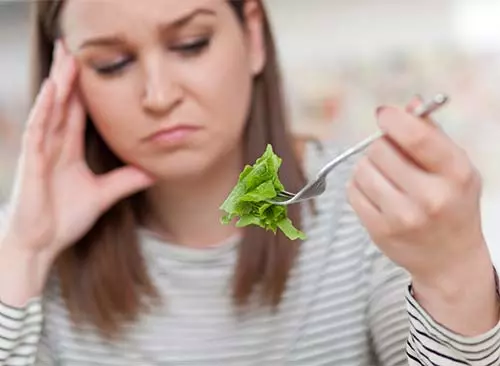
Though there are good reasons you should follow the raw food diet, consuming raw foods for a prolonged period can make you vitamin deficient. There are also certain side effects of eating uncooked food including:
- Harmful bacteria and other germs are not killed when you consume raw food (5).
- If you have a weak digestive system, you may not be able to digest raw food.
- Cooking brings out some of the nutrients in some veggies like bell peppers and tomatoes.
- Raw foods may cause inflammation in your digestive tract.
- Raw foods may cause you to become deficient in vitamin B12.
- Most people are unable to consume raw eggs or meat.
So, it is clear that the raw food diet is not for everyone. Moreover, going on a raw food diet without learning about its nutrient density may also lead to less or improper intake of vital nutrients. If you are healthy and have no health issues, continue consuming cooked food. Occasionally, you can detox your body by going on a 2-day or 3-day raw food diet. That said, the raw food diet may be a good option for those suffering from a few health problems. Scroll down to find out if you should follow it.
Who Should Follow The Raw Food Diet?
Forget the diets that others are following. Follow a diet that suits your health conditions and lifestyle. The raw food diet does promote a healthy lifestyle and may help prevent certain diseases. Should you follow it? Possibly yes, if you:
- Are obese
- Are diabetic
- Are looking to detox
- Suffer from constipation
- Have gallstones
- Have hormonal imbalance
- Experience sore muscles and joint pain frequently
- Are allergic to certain processed foods
- Have high cholesterol
- Suffer from heart disease
- Are fighting cancer
Tips For Following The Raw Food Diet
- Plan and prepare your food in batches for convenience.
- Store meals properly to maintain freshness.
- Explore different cuisines and ingredients and create your own recipes for variety and change of taste. It’s a fun way to keep your meals interesting.
- Drink plenty of water and herbal teas. You can also infuse your water with fruits or herbs to add that tasty twist. You may also consider coconut water for electrolytes. Remember, staying hydrated is a key part of your health journey.
Implementing practical tips can make starting a raw food diet easier, ensuring you maintain proper nutrition and enjoy the transition. Scroll down to learn more about them.
How To Start A Raw Food Diet Effectively
Every diet routine needs proper preparation and planning to ensure its effectiveness and sustainability. These tips can help you in starting and sticking to a raw food diet:
- Understand which foods can be eaten raw, including fruits, vegetables, nuts, seeds, sprouted grains, and fermented foods.
- Start by substituting raw foods for one or two meals per day rather than making the switch all at once.
- Stock up and include a variety of leafy greens, vibrant veggies, nuts, seeds, and healthy fats to ensure you are getting all the nutrients you need.
- Keep an eye on your body’s response and make any adjustments as needed.
- Seek guidance, inspiration, and new recipes by connecting with raw food organizations, online forums, or social media networks.
- Find diet buddies in your family or on online forums and apps so you may support and motivate each other, and do not have to go through the journey alone.
Infographic: All You Need To Know About The Raw Food Diet
Following a diet of raw, unprocessed foods for a week can improve your body’s metabolism and help you shed calories significantly. Raw, uncooked foods are devoid of preservatives and rich in nutrients and, hence, they offer more energy. However, following this diet for extended periods can cause vitamin deficiencies and digestive issues. In the following infographic, we have discussed this diet, along with its benefits and side effects. Take a look.
Some thing wrong with infographic shortcode. please verify shortcode syntaxRaw foods are free of preservatives. They are fiber-rich foods with high nutrients and low calories. A raw food diet is rich in calcium, omega-3 fatty acids and probiotics that help with weight loss, improve digestive health, and aid in cancer prevention. A week on a raw food diet may assist you in experiencing beneficial changes in your body, because it is an excellent diet for regaining your health. However, you must also eat cooked meals to compensate for nutritional shortages. This is a great diet to regain your health. However, consult your doctor or a dietitian for advice before beginning a raw food diet.
Frequently Asked Questions
How much weight can you lose on a raw food diet?
It depends on your individual BMI, age, gender, fitness levels, and consistency in following the diet.
Can raw vegans drink coffee?
No, coffee is not allowed on a raw food diet.
Can you survive on raw food?
While it might be possible to survive on a raw food diet, you must consider its several side effects before continuing it for a prolonged period of time.
Is peanut butter raw?
No, peanut butter is usually made from roasted peanuts and, hence, is not considered a raw food.
Can you eat sweet potatoes on a raw vegan diet?
Yes, you can eat raw sweet potatoes on a raw vegan diet (also called raw veganism). However, it may lead to gas and abdominal discomfort for some people.
Some thing wrong with illustration image shortcode. please verify shortcode syntax
Get inspired, gain insights, and witness the transformative power of eating raw foods. Watch this video to know more about this diet before embarking on your own raw food adventure.
Personal Experience: Source
StyleCraze's articles are interwoven with authentic personal narratives that provide depth and resonance to our content. Below are the sources of the personal accounts referenced in this article.
i. Raw food diet – how raw do you need to be? what does it mean to be 80% or 100% raw?https://foodsforlonglife.blogspot.com/2010/01/raw-food-diet-how-raw-do-you-need-to-be.html
References
Articles on StyleCraze are backed by verified information from peer-reviewed and academic research papers, reputed organizations, research institutions, and medical associations to ensure accuracy and relevance. Read our editorial policy to learn more.
- Long-term consumption of a raw food diet is associated with favorable serum LDL cholesterol and triglycerides but also with elevated plasma homocysteine and low serum HDL cholesterol in humans
https://pubmed.ncbi.nlm.nih.gov/16177198/ - Raw and Cooked Vegetable Consumption and Risk of Cardiovascular Disease: A Study of 400,000 Adults in UK Biobank
https://www.frontiersin.org/journals/nutrition/articles/10.3389/fnut.2025.831470/full - Consequences of a long-term raw food diet on body weight and menstruation: results of a questionnaire survey
https://pubmed.ncbi.nlm.nih.gov/10436305/ - Raw versus cooked vegetables and cancer risk
https://pubmed.ncbi.nlm.nih.gov/15342442/ - POPULAR DIETS: RAW FOODS1
https://edis.ifas.ufl.edu/publication/fs404
Read full bio of Tracy Tredoux
Read full bio of Ravi Teja Tadimalla
Read full bio of Payal Karnik











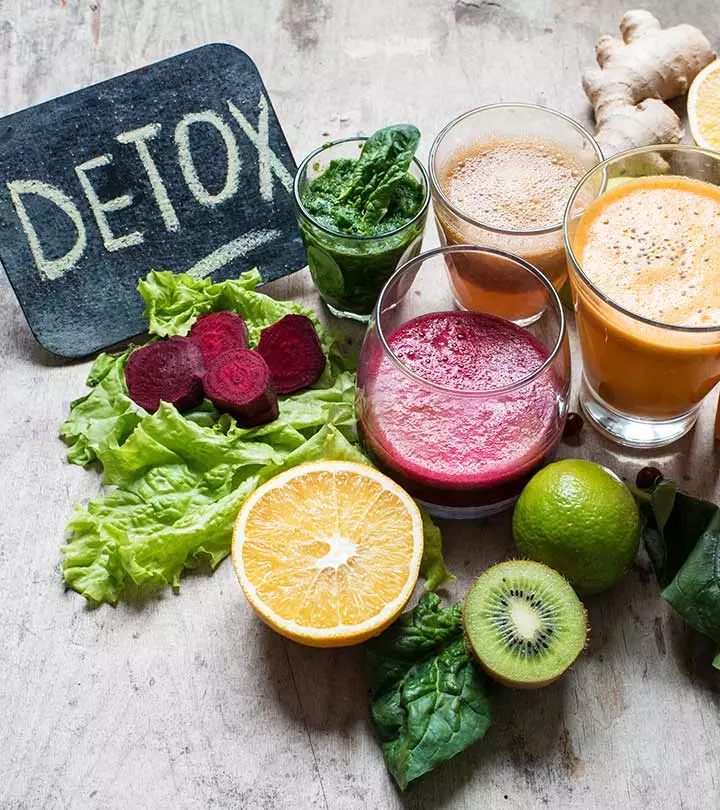

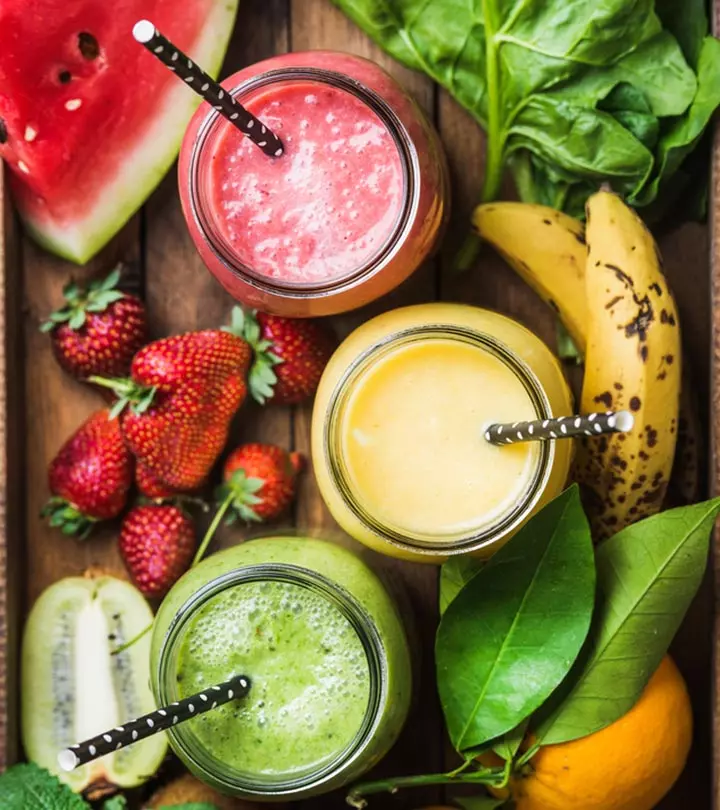
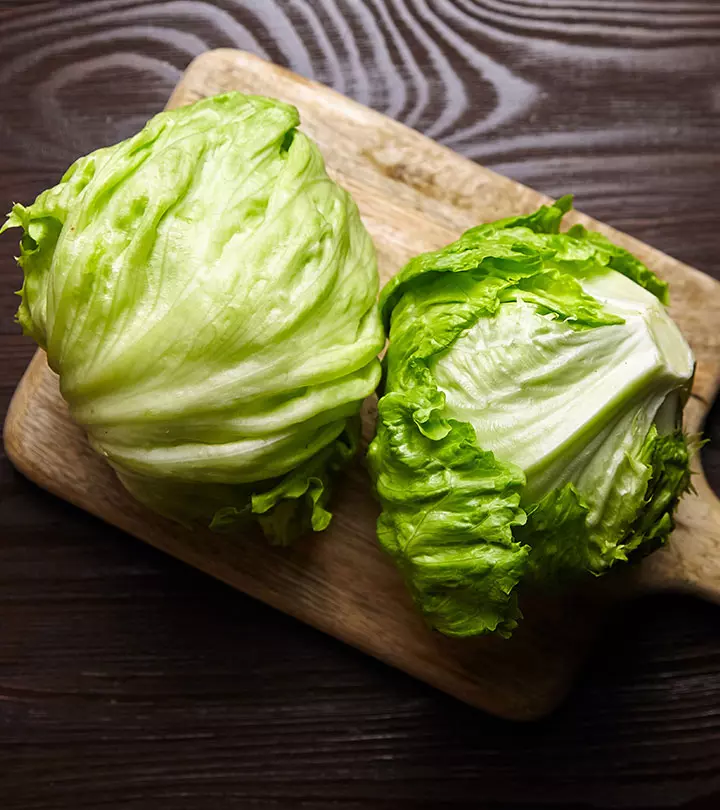


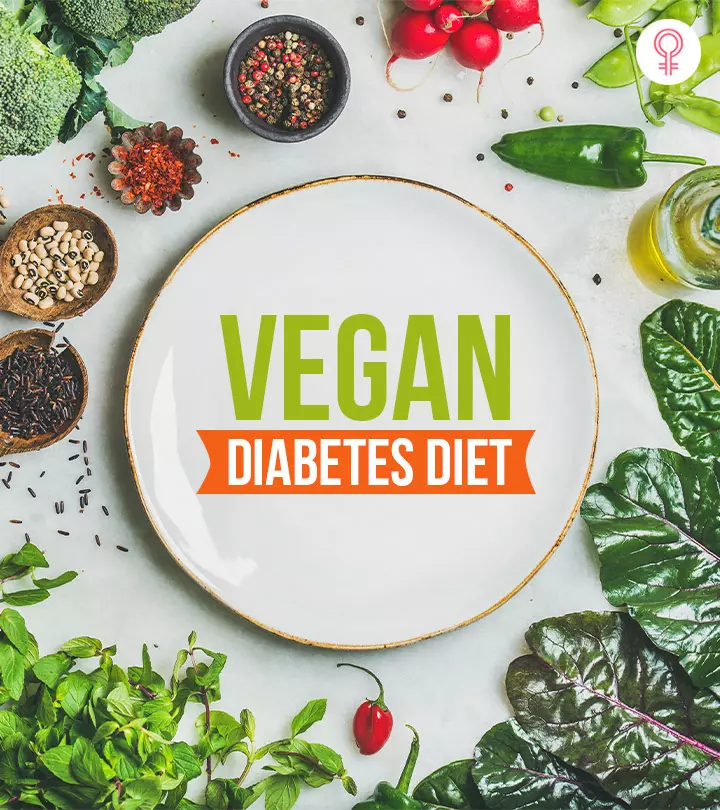
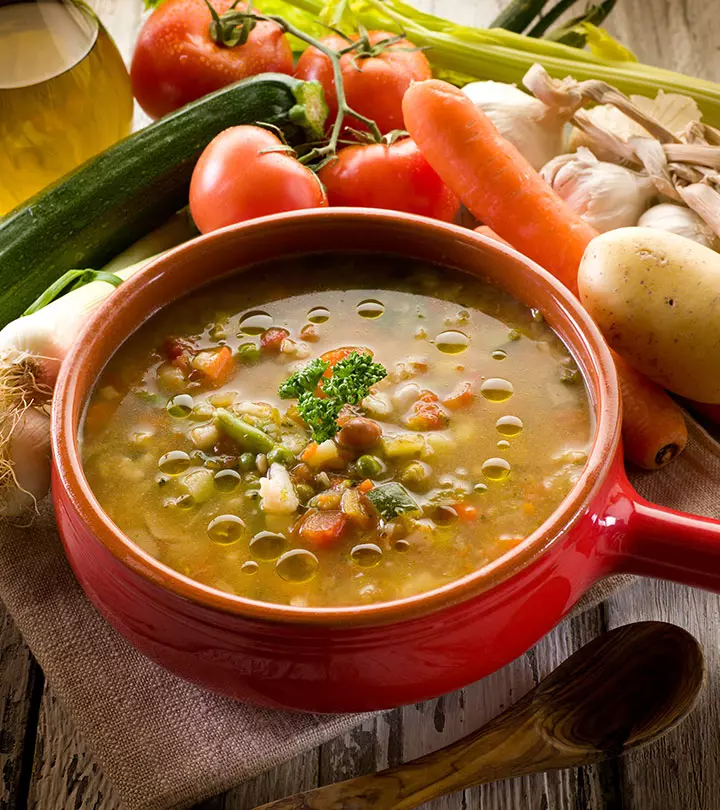

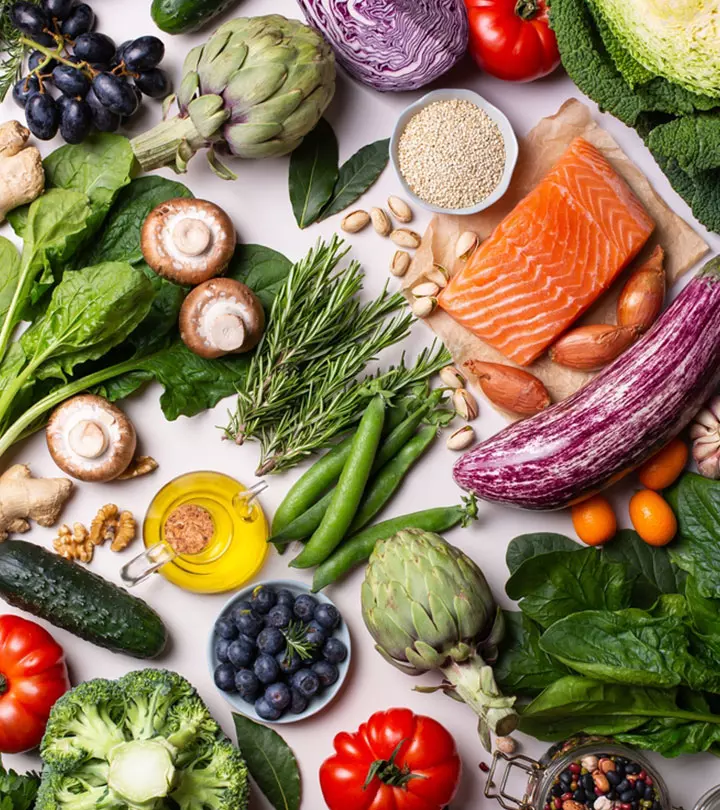
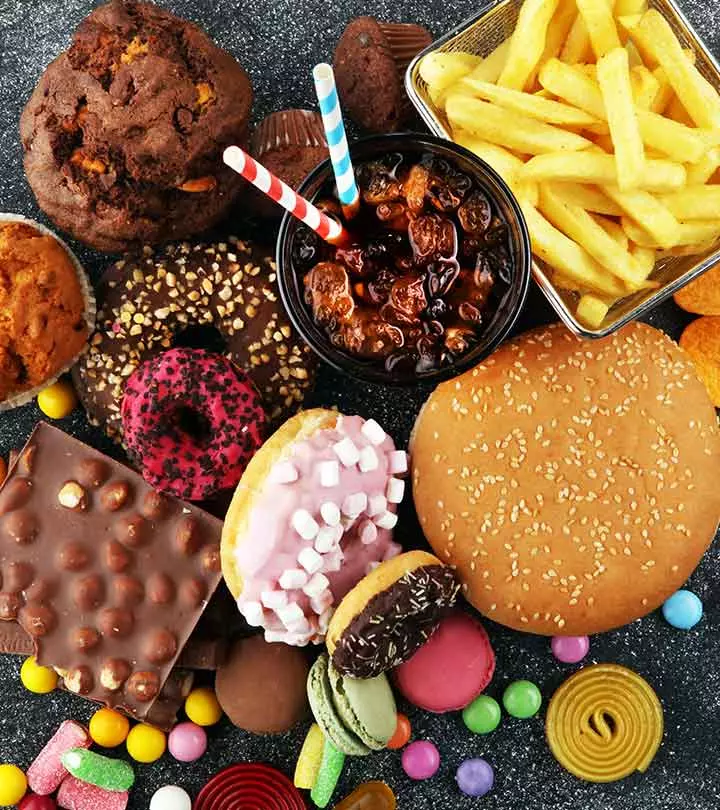

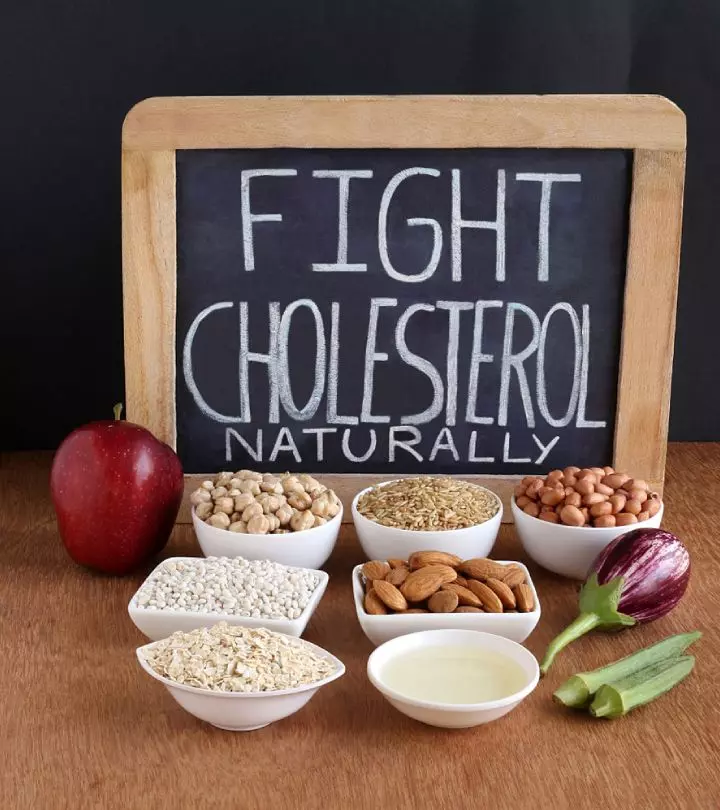
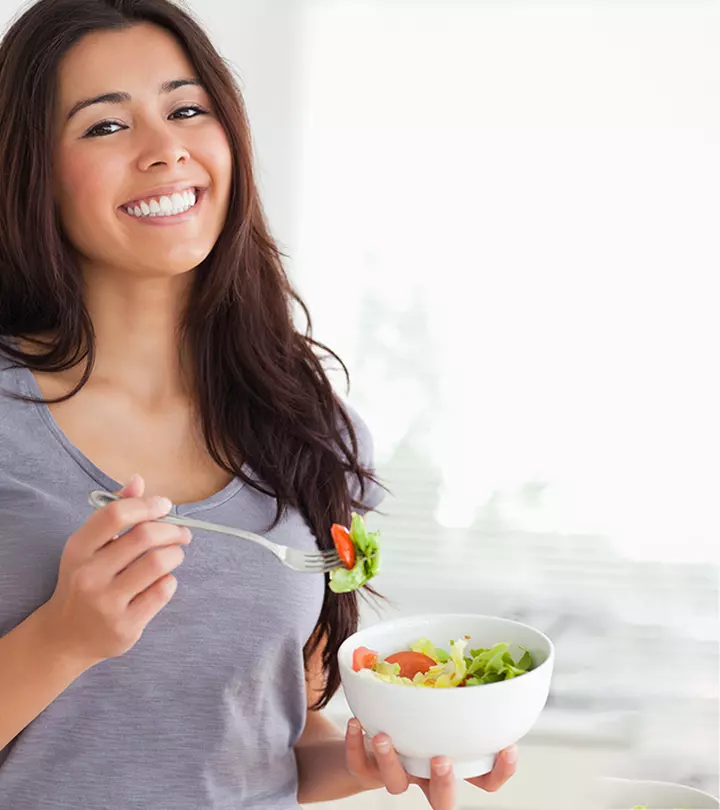
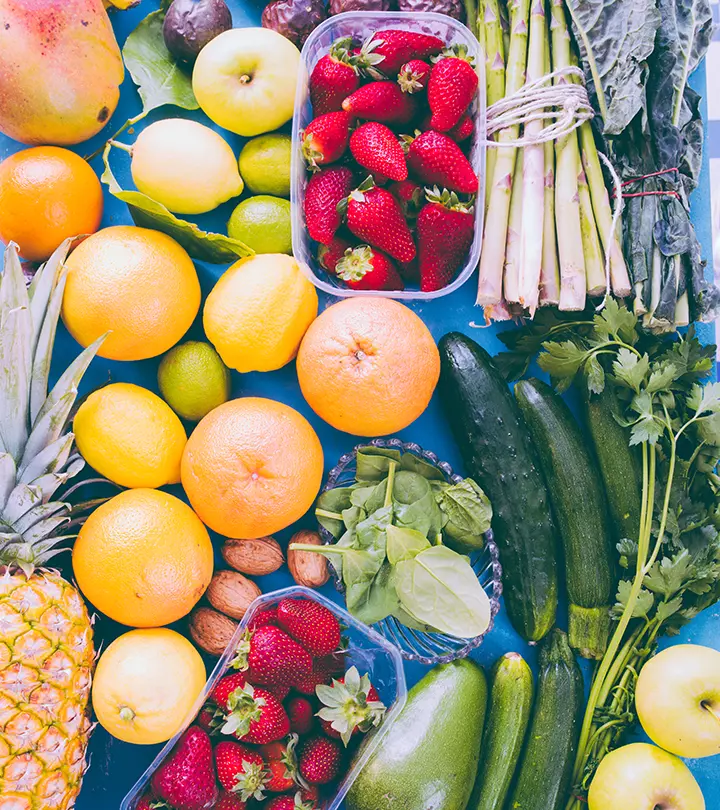
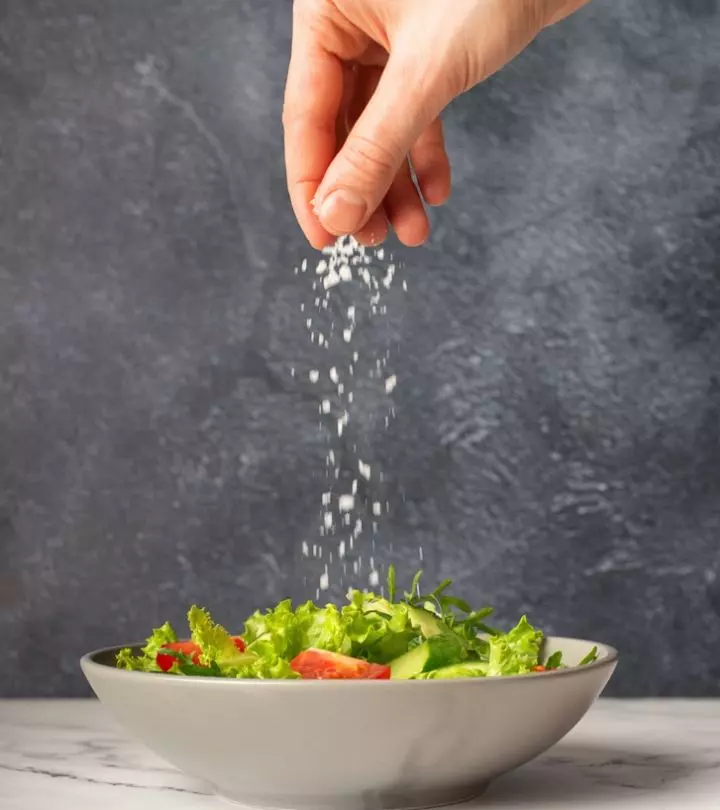
Community Experiences
Join the conversation and become a part of our empowering community! Share your stories, experiences, and insights to connect with other beauty, lifestyle, and health enthusiasts.